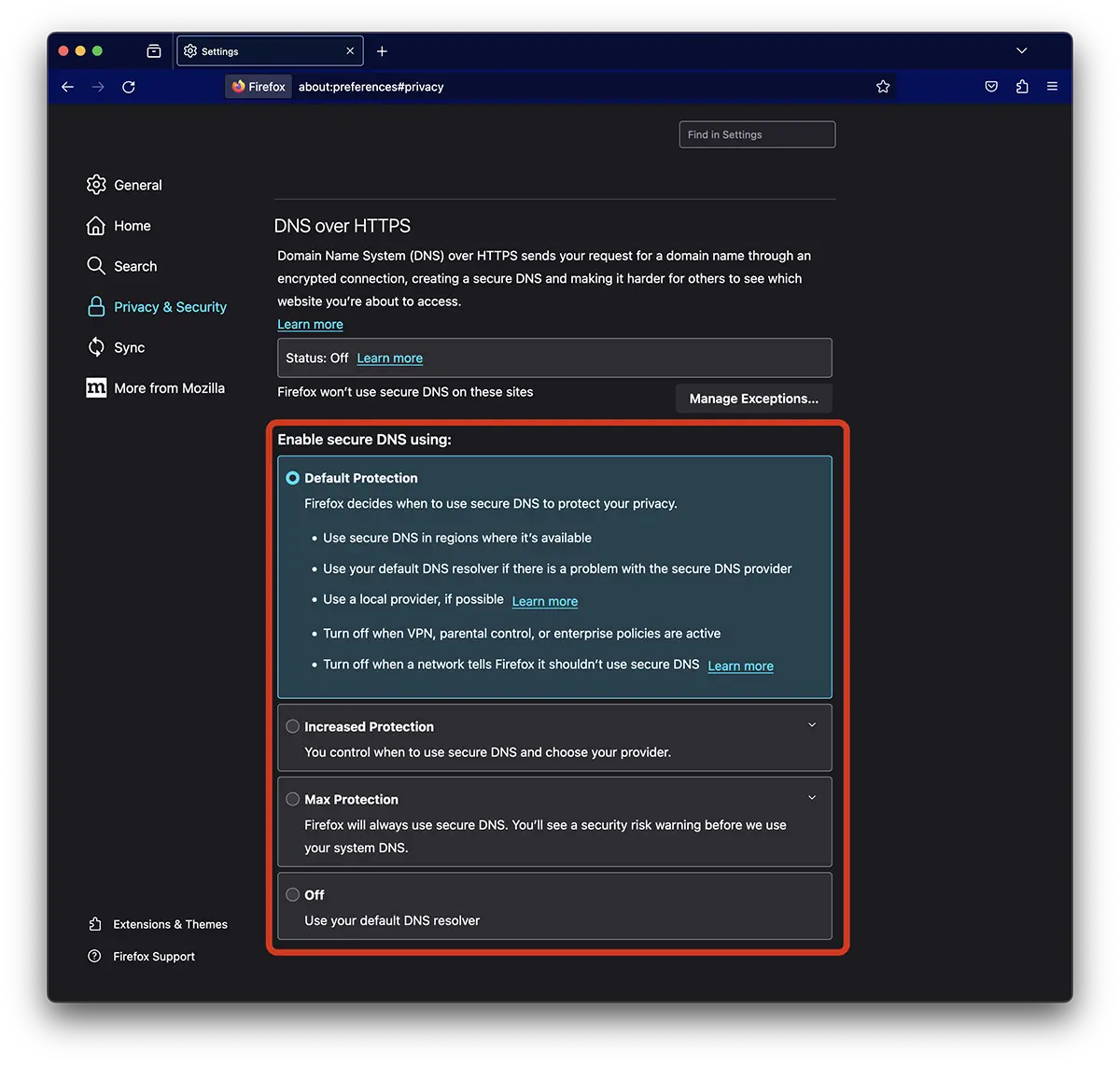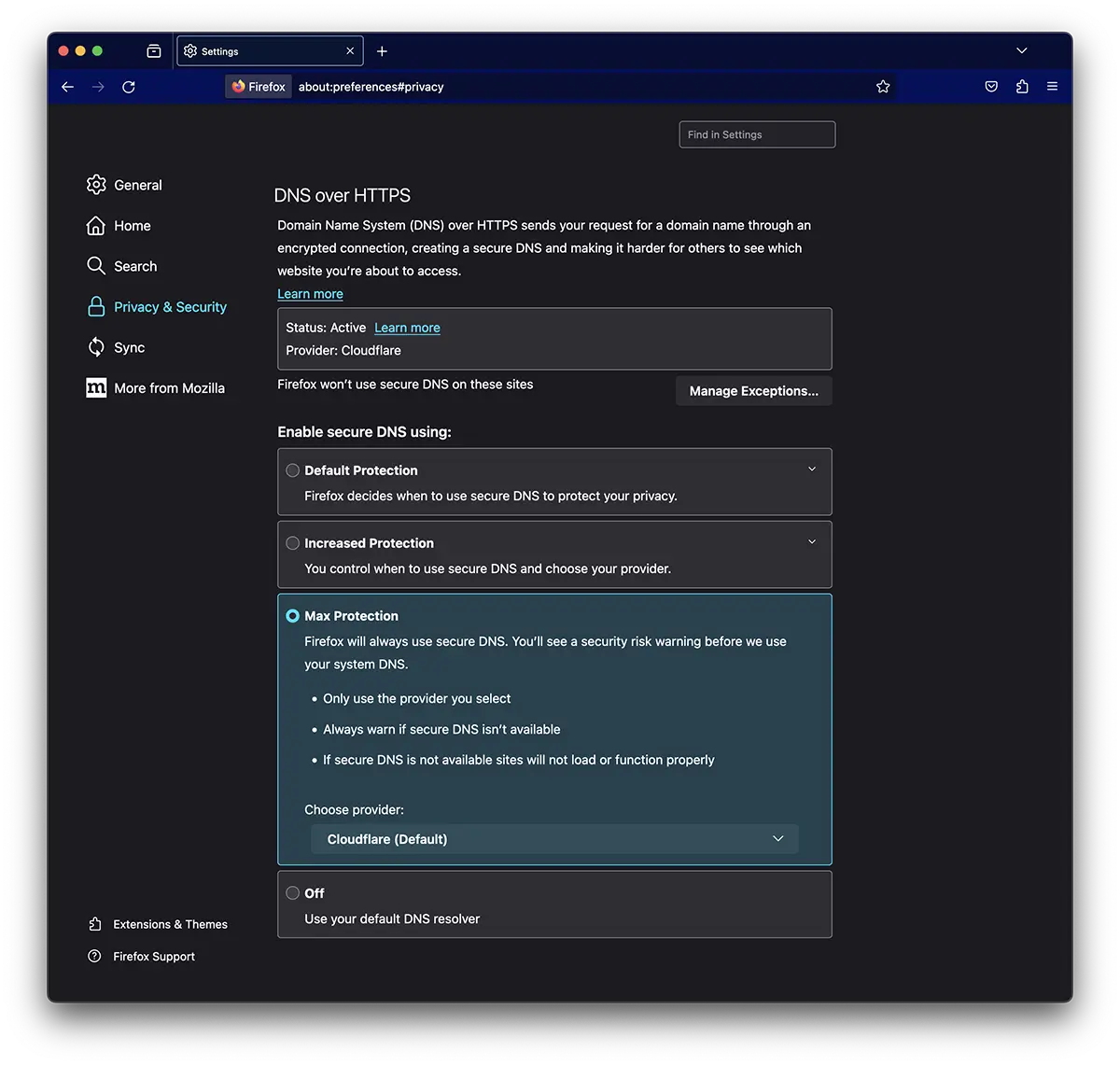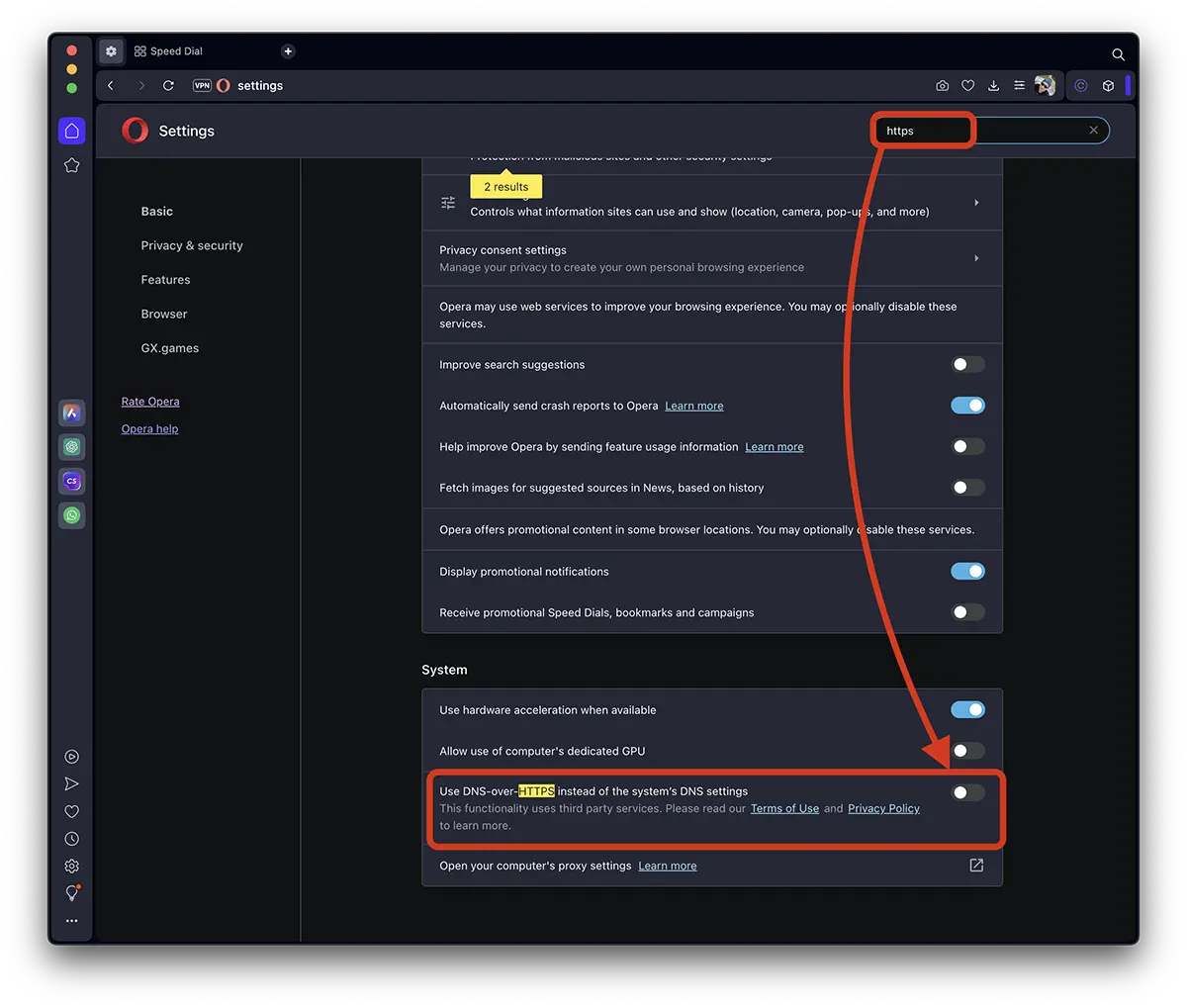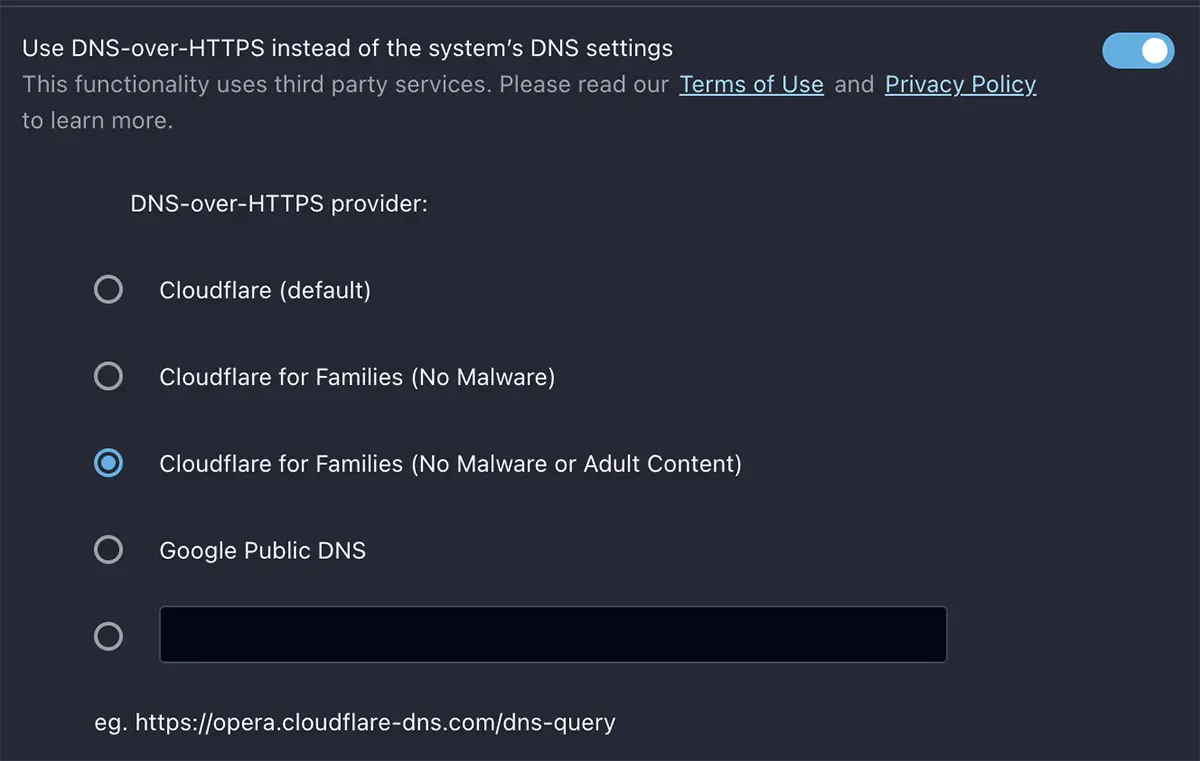For more secure browsing on the Internet, without confidential data being intercepted, DNS over HTTPS it is definitely a very good solution. Enhanced privacy, improved security and protection against censorship are just some of the advantages of using this technology that actively prevents interception of your internet browsing.
Before you see how you can enable this technology on computers with operating systems Windows 11, let's detail a little what it means DNS over HTTPS (DoH).
Content
What does it mean and what does it help with? DNS over HTTPS (DoH)?
DNS over HTTPS (DoH) is a technology that encrypts DNS (Domain Name System) to protect the privacy and security of information related to Internet browsing.
Cu DNS over HTTPS, DNS requests are encrypted using HTTPS, the same security protocol used to protect connections to websites. This adds an extra layer of security and privacy compared to the traditional method of sending DNS requests in plain text, which can be easily intercepted and analyzed.
Advantages of use DNS over HTTPS
The most important aspects of using DoH concern privacy and data security while browsing the Internet.
Increased privacy
Because DNS requests are encrypted, Internet Service Providers (ISPs), organizations, or attackers cannot easily monitor which websites you visit.
Improved security
Encrypting DNS requests helps prevent man-in-the-middle attacks, where an attacker can intercept and modify DNS requests to redirect users to malicious websites.
Protection against censorship
In some countries or networks, certain websites may be censored by blocking access to the corresponding IP addresses. DNS over HTTPS can help bypass these restrictions.
Consistency in security
When using DoH, the security of browsing information is protected in a similar way to connections to websites (HTTPS). This makes the level of security consistent throughout the connection.
In other words, DoH makes it harder to intercept Internet browsing, providing the user with a safer online environment.
How you can activate DNS over HTTPS (DoH) on Firefox?
DNS over HTTPS (DoH) was first introduced by Mozilla in 2017 when it was implemented in the Firefox browser. If you are a Firefox browser user, you can enable the DoH option to encrypt DNS requests and send them over a connection HTTPS. Regardless of whether you are a user of operating systems Windows or macOS.
1. Open the Firefox browser then go to “Settings”>“Privacy & Security” (or access directly from the address bar: about:preferences#privacy .
2. At the options "Privacy & Security” find at the bottom the status and settings for DoH activation, according to your needs.

3. Most of the time DoH is activated in “Default Protection", but you can enable "Increased Protection"Or"Max Protection". Each option having specific security features.

My recommendation is to make sure that the level of protection you choose does not affect your internet browsing. For example, in the case of the “Max Protection", if DNS security is not available, websites will not be accessible.
How to enable DoH on Opera browser?
Although Mozilla was the first to implement DNS over HTTPS for Firefox, the Opera browser seemed to me to offer simpler and at the same time more effective options to prevent interception of Internet browsing and access to web pages that are not secure.
1. Open Opera, then go to the “Settings".
2. In the search bar type “https” then go to 'Use DNS-over-HTTPS instead of the system’s DNS settings” and enable the option.

3. As I said above, it seems to me that the Opera browser offers clearer options for DoH.
Once enabled, there are three options for DoH protection and filtering through Cloudflare.

The module “default” that secures the connection and two “Cloudflare for Families” modes that prevent accessing malicious web pages and/or that provide adult content.
In fact, this option is a good protection to prevent children from accessing sites with adult content.
In conclusion, activation DNS over HTTPS (DoH) in browsers like Firefox or Opera is a plus for improving security and privacy while surfing the Internet. By encrypting DNS requests, DoH provides protection against the interception and manipulation of these requests, ensuring that information about the websites you visit remains confidential.